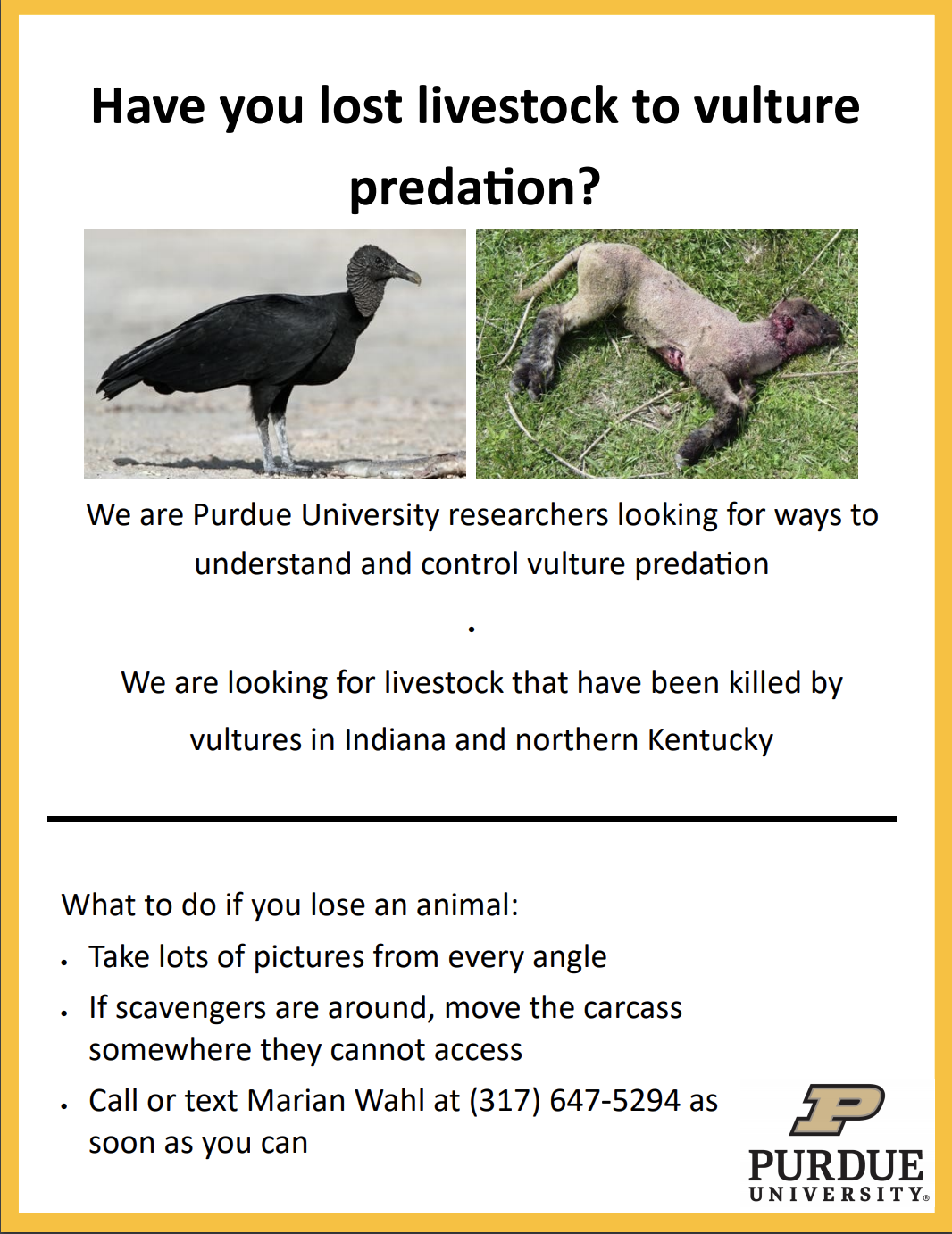Across the globe, most vulture species are declining dramatically. This is concerning because vultures provide valuable ecosystem service by cleaning the environment of carrion, thereby reducing disease risk for humans and livestock. In contrast to most other vulture species, populations of the American black vulture have grown and expanded into new areas during the past several decades. This has created the potential for conflict because black vultures have been documented to kill weak or newborn livestock.
The Purdue Forestry and Natural Resources’ research team seeks to better understand vulture ecology to inform conservation of other vulture species, as well as to understand how best to minimize conflict between vultures and producers by investigating what factors place some farms at greater risk.
What to do if you lose an animal:
• Take lots of pictures from every angle.
• If scavengers are around, move the carcass somewhere they cannot access.
• Call or text Marian Wahl at (317) 647-5294 as soon as you can. Marian is a graduate research assistant working with Pat Zollner, professor of wildlife science.
Thank you for your help as we gather livestock loss due to vultures in the states of Indiana and Kentucky.
To view, print and share flyer: Loss of Livestock to Vultures.
Resources
Livestock, Education Store, Purdue Extension resource center
Dr. Pat Zollner Research, Purdue Forestry and Natural Resources
Wildlife Research, Purdue Forestry and Natural Resources
Marian Wahl, Graduate Research Assistant
Purdue Department of Forestry and Natural Resources


